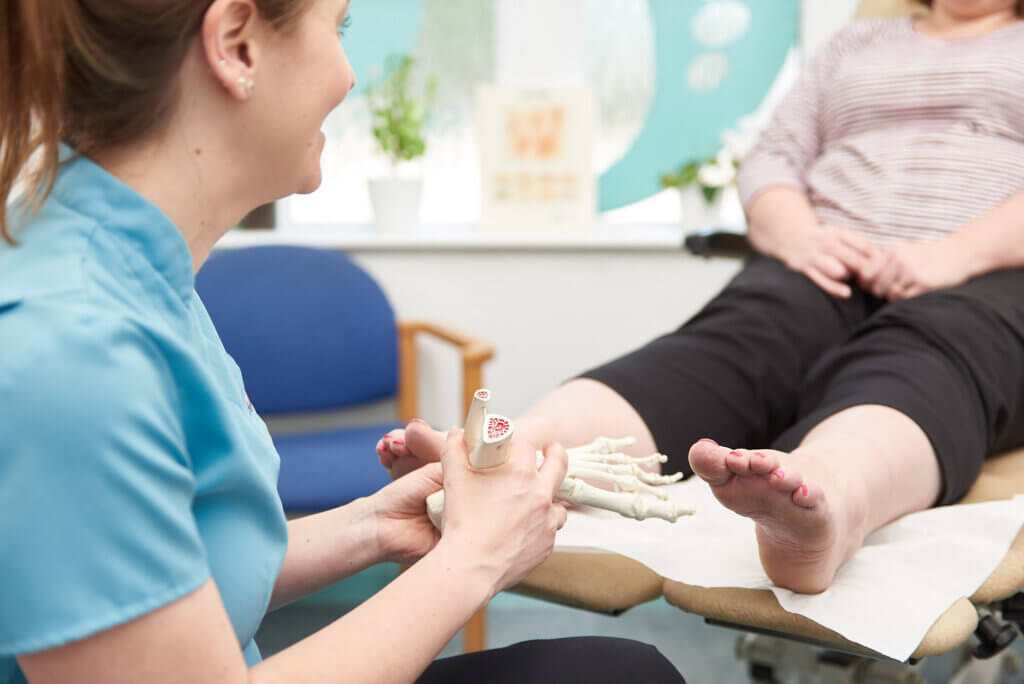
How often should I see a Podiatrist?
How often should I see a Podiatrist?
The answer to this question will vary for every individual and will depend on what problems you have with your feet.
However, it is always a good baseline to say that a yearly visit to a Podiatrist for a check-up of your feet would not go amiss.
How often do you see patients in clinic?
We see people in clinic at varying intervals, from weekly/every two weeks, to annually for check-ups. It entirely depends on what conditions we are treating.

Why seeing a Podiatrist should be part of your annual health MOT.
Your feet are very complex things. With 26 bones in each, plus over a hundred ligaments and tendons, multiple joints, skin, nails, nerves and blood vessels, there is a lot to keep track of.
Not to mention the fact that your feet are notoriously hard to reach or see.
Seeing a Podiatrist for an annual check up is a good way to get all of the above checked and assessed, and hopefully either prevent problems happening in the first place or intervene early when they develop.
For example, we see plenty of people who have moles or other lesions on the soles of the feet, or between the toes, of which they were not aware. As part of our assessment, we check the skin over carefully for any lesions, and make a note of any that we find. We can use our dermatoscope to take detailed photographs of lesions to record in our notes, and can even send them to patients, for them to have a record of what they look like, to enable them to check for any changes.
What else can you check for?
Annual checks of circulation and sensation are important, especially for those with conditions like Diabetes and vascular disease, but also in general as we get older. In clinic, we use a doppler to listen to foot pulses, and allow us to assess the circulation to the feet. We also regularly test sensation and can detect sensory loss within the foot.
As part of our skin assessment, we regularly pick up skin infections such as athlete’s foot, often that our patients are not aware that they have. If treated early and managed properly, these infections can be resolved and kept at bay. The longer these infections hang around, the harder they can be to treat, especially if they spread to the nails.
If you have any concerns about your feet, or if you have underlying health conditions such as Diabetes or vascular disease, it’s always a good idea to book a check-up with an HCPC registered Podiatrist. Just like you would get your eyes tested annually, why not give your feet the same level of TLC?
You can book in with us here.
For more information on what Podiatrists do, read here.
Anna Conway
BSc (Hons), MCPod, SRCh, PGcert Podiatry
Owner, Lead Podiatrist

